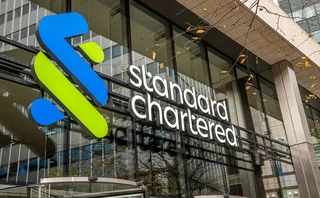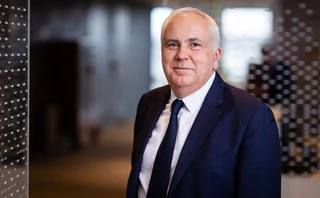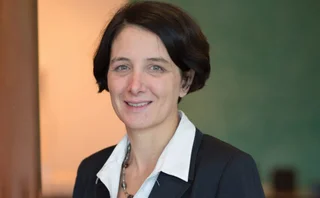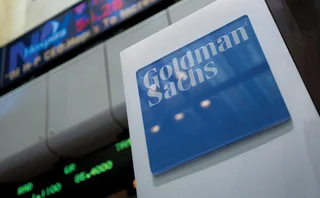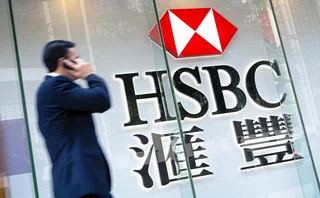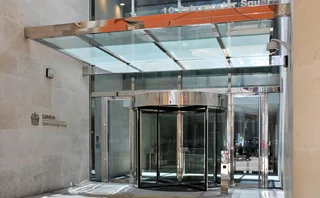
SEC incompetence and secrecy over Madoff enrages Congress
The fraud examiner who spent eight years warning about Bernard Madoff's alleged Ponzi scheme has blamed institutional incompetence within the Securities and Exchange Commission (SEC).
More substantive calculations and modelling of Madoff's supposed split-strike conversion strategy proved it could not possibly produce such returns, and took around four hours, Markopolos said - although in-depth work to figure out the exact nature and details of the scheme took his team "several hundred hours" and generated 311 pages of documents in support of their conclusions.
Markopolos roundly attacked the SEC for failing to recruit examiners with expertise in derivatives and quantitative finance.
"I don't think that any of the 3,500 staff at the SEC understands how a split-strike conversion works, with the exception of one staff member in the Boston office. If you send in a team of lawyers to look at derivatives they won't find a fraud. You need financial professionals that are well compensated and incentivised to uncover fraud," Markopolos argued.
"The SEC did not understand the red flags I handed them and they probably had no-one on their staff system-wide that could do the maths; I don't think you could have figured it out without a derivatives or quantitative background. I would replace the senior staff at the SEC and then go to the bottom examiners, because that team can't be made up of twentysomethings with no market experience," he added.
Beyond the level of "financial illiteracy" rife within the securities regulator, Markopolos went on to highlight other commonsense means that could have exposed Madoff's non-existent derivatives trades, such as simply checking the New York Stock Exchange to corroborate that BMIS traded stocks moved in sufficient volumes on given days to correspond with Madoff's purported positions. Such investigations would have revealed that Madoff's stated options contract positions were several times larger than the exchange-traded market for options, he said.
Another means to expose the fraud would have been to visit the Chicago Board of Exchange and speak with OEX index options traders to ask whether any of them had ever conducted a trade on behalf of BMIS. According to Markopolos, the answer would have been no.
"The SEC could have gone into Madoff's office and asked to speak with one of his derivatives traders. He had no derivatives traders at his firm. That is the hallmark of a Ponzi scheme: there is no underlying product or service," he added.
Markopolos went on to describe the SEC as "incompetent and unwilling to take on a big player like Madoff" while the Financial Industry Regulatory Authority (Finra) was characterised as "corrupt and definitely in bed with the [financial services] industry". At the following hearing, Finra chief executive Stephen Luparello stated that the body "takes great exception to the characterisation of being corrupt".
Markopolos's recommendations to prevent similar frauds escaping detection included the creation of a super-regulator combining banking, capital markets and insurance regulators with a central database of enforcement actions, a centralised office of whistle-blowing that provides compensation for whistleblowers willing to take the risk, and a request that Congress should pass regulation regarding over-the-counter derivatives to illuminate the "dark places where financial criminals operate".
After the conclusion of Markopolos's testimony, five representatives from the SEC appeared before the committee to testify on the work of respective divisions around the alleged ponzi scheme. Congressmen left frustrated by the evasive answers given by a SEC representative at the previous Madoff hearing in January were similarly incensed by the SEC contingent's refusal to answer specific questions pertaining to the BMIS investigation over concerns that such comments would render certain information inadmissible at any future criminal proceedings.
"It seems there is a misunderstanding between the SEC and the US Congress over who created who. Listening to the testimony of this panel, I have tentatively come to the conclusion that the SEC thinks it is appointed by God to be self-righteous," fumed committee chairman Paul Kanjorski. "We're here to decide in what form the SEC is to continue to exist, and the [commission's] refusal to co-operate with the Congress in recent weeks is unacceptable."
The chairman promised to ascertain the exact legal rights of the US Congress to force federal regulators to testify before legislators, or whether they are able to exempt themselves from testimony under privilege extended to the executive branch, with a view to getting answers at a later hearing.
Although successfully avoiding providing details of the SEC's failings in not heeding Markopolos' repeated tip-offs, commission staff could not deflect the full ire of congressmen furious at their repeated refusal to answer questions.
"You've told us nothing, and I believe that that is your intention. Your mission was to protect investors; what went wrong? One guy with a few friends and helpers discovered this thing nearly a decade ago. He led you to this pile of dung that this Bernie Madoff was and stuck your nose in it and you couldn't figure it out. You couldn't find your backside with two hands with the lights on. This is pathetic," argued representative Gary Ackerman.
See also: Quantitative tests pointed to Madoff fraud, says Riskdata
Congress questions SEC competence as Madoff investigation begins
Madoff fraud puts focus on fund due diligence
Only users who have a paid subscription or are part of a corporate subscription are able to print or copy content.
To access these options, along with all other subscription benefits, please contact info@risk.net or view our subscription options here: http://subscriptions.risk.net/subscribe
You are currently unable to print this content. Please contact info@risk.net to find out more.
You are currently unable to copy this content. Please contact info@risk.net to find out more.
Copyright Infopro Digital Limited. All rights reserved.
As outlined in our terms and conditions, https://www.infopro-digital.com/terms-and-conditions/subscriptions/ (point 2.4), printing is limited to a single copy.
If you would like to purchase additional rights please email info@risk.net
Copyright Infopro Digital Limited. All rights reserved.
You may share this content using our article tools. As outlined in our terms and conditions, https://www.infopro-digital.com/terms-and-conditions/subscriptions/ (clause 2.4), an Authorised User may only make one copy of the materials for their own personal use. You must also comply with the restrictions in clause 2.5.
If you would like to purchase additional rights please email info@risk.net
More on People
Standard Chartered taps Newman to head rates and FX trading
UBS veteran becomes latest fixed income trading exec to leave Swiss bank
People: Balaÿ is new broom at CA CIB, Ungari swaps QIS roles at SG
Latest job changes across the industry
SG’s Ungari swaps research for structuring in new QIS role
Veteran researcher and strategist ‘putting things into action’ with new remit
Caramanli quits Ion, destination unknown
Current markets head Oliviero is said to have replaced outgoing chief product officer
People: Natixis adds global markets trio, Six switches CRO, and more
Latest job changes across the industry
People: Shake-up at Goldman, new op risk posts, and more
Latest job changes across the industry
HSBC appoints Benihasim as global FX head
Hong Kong-based Benihasim replaces Richard Bibbey, who moved to London to run institutional sales
People: New leader for LCH, Pham lands CFTC top job, and more
Latest job changes across the industry
